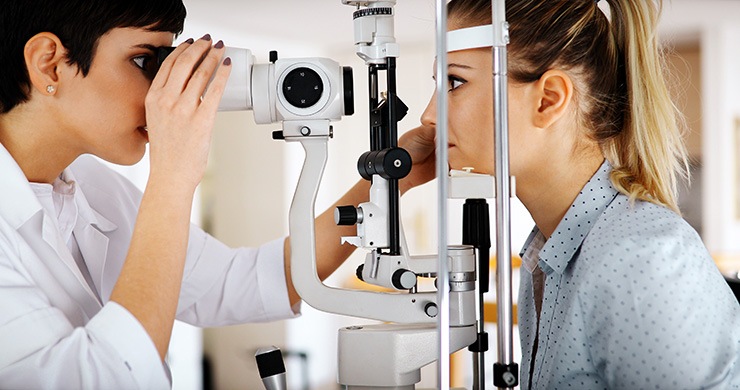The Significance of Regular Check-Ups with an Eye Doctor Optometrist
The Significance of Regular Check-Ups with an Eye Doctor Optometrist
Blog Article
Recognizing the Comprehensive Duty of an Eye Doctor in Modern Eye Treatment
With improvements in technology and an enhancing focus on precautionary care, eye doctors are indispensable in diagnosing and taking care of persistent eye conditions, while additionally involving in very early illness discovery. Exactly how do these duties converge with their function in promoting overall eye health and wellness, and what does this mean for client results in a joint medical care atmosphere?
Expanded Scope of Technique
In current years, the role of eye doctors has actually developed significantly, with several specialists now embracing an expanded extent of practice that extends beyond standard eye evaluations. Their duties currently include a wide range of solutions, including prescribing medications for ocular conditions, managing chronic eye diseases, and executing minor surgical procedures.
Further, optometrists are now extra included in joint care, working very closely with eye doctors, primary treatment physicians, and other health care professionals to make certain holistic client care. This interprofessional collaboration is vital in taking care of complex situations that need a multidisciplinary approach. In addition, eye doctors are playing a critical duty in public wellness campaigns, such as vision screenings and eye wellness education and learning, focused on enhancing community health and wellness outcomes.
The expanded range of method for optometrists not only improves their ability to give comprehensive care however additionally attends to the growing demand for efficient and accessible eye care solutions, contributing to general medical care improvements.
Early Disease Detection
Very early discovery of eye conditions is increasingly becoming a prime focus in the expanded duty of eye doctors. As primary eye care service providers, eye doctors are distinctly positioned to recognize very early signs of ocular conditions such as glaucoma, macular deterioration, diabetic person retinopathy, and cataracts. This essential role is essential, as early diagnosis can dramatically boost the administration and diagnosis of these conditions, potentially preventing vision loss and improving individual outcomes.
Eye doctors utilize extensive eye evaluations to identify subtle adjustments in vision and eye health. These exams often consist of evaluations of aesthetic skill, intraocular pressure, and retinal health. The capability to acknowledge early indications of systemic health problems, such as high blood pressure and diabetes mellitus, with ocular indicators even more emphasizes the importance of routine eye exams. Early treatment is not just advantageous in protecting vision however also in reducing health care prices linked with advanced condition treatments.
Moreover, eye doctors play a vital function in person education and learning, highlighting the relevance of routine eye evaluations as part of total health care. By fostering a positive approach to eye treatment, optometrists contribute dramatically to public health, making certain diseases are captured and taken care of properly before they can proceed.
Advanced Diagnostic Techniques
Advanced analysis techniques have actually transformed the practice of optometry, enabling experts to find and keep an eye on eye diseases with unmatched precision. Technologies such as optical comprehensibility tomography (OCT) give high-resolution, cross-sectional images of the retina, promoting early detection of conditions like glaucoma and macular deterioration.
One more essential improvement is digital retinal imaging, which captures detailed views of the retina using helpful hints high-def video cameras. This modern technology is essential in recognizing changes in retinal structure over time, thereby helping in the management of problems like diabetic retinopathy. Visual area testing, boosted by computer-aided systems, enables exact mapping of a patient's line of vision, necessary in identifying and tracking glaucoma development.
Corneal topography, an additional notable diagnostic tool, produces topographic maps of the cornea's surface. This is especially helpful in fitting call lenses and preparing refractive surgery. These sophisticated analysis techniques collectively enable eye doctors to provide proactive, targeted care, ensuring better person outcomes and reinforcing their critical role in eye wellness administration.
Handling Chronic Eye Problems
Taking care of chronic eye problems is a keystone of optometric treatment that requires a thorough understanding of numerous ocular diseases and their long-lasting effects. Optometrists play a pivotal role in diagnosing, tracking, and handling problems such as glaucoma, diabetic retinopathy, and age-related macular deterioration. These problems, if left unattended, can bring about significant aesthetic impairment or loss of sight, highlighting the essential value of continuous treatment and monitoring.
Eye doctors use a variety of diagnostic devices, including optical coherence tomography (OCT), aesthetic field testing, and fundus photography, to evaluate the development of these persistent problems. By closely keeping an eye on adjustments in ocular wellness, eye doctors can change therapy strategies to reduce disease development. This might include recommending medicines, recommending lifestyle modifications, or collaborating with eye doctors for surgical treatments when essential.

Function in Preventive Care
Precautionary treatment is a fundamental facet of optometry that focuses on maintaining eye wellness and avoiding the onset of ocular illness. Eye doctors play a vital role in very early discovery and avoidance, employing routine eye evaluations to determine threat variables and subtle adjustments in ocular wellness. Eye Doctor. These evaluations are not merely about vision improvement yet encompass a thorough analysis of eye functions and frameworks, allowing the identification of conditions such as glaucoma, cataracts, and macular deterioration at a beginning
Along with diagnostics, optometrists educate clients on way of living selections that promote eye health and wellness, such as appropriate nourishment, UV security, and the relevance of routine eye check-ups. They advise on the appropriate use digital devices to stop electronic eye stress, an expanding concern in the digital age. Eye doctors also offer guidance on safety glasses for recreational and occupational activities, reducing the threat of injury.
Precautionary eye care includes systemic health problems that materialize in the eyes, such as diabetes mellitus and high blood pressure. By teaming up with other health care experts, optometrists add to alternative client treatment, stressing the interconnectedness of systemic and eye wellness. This proactive method is essential in securing aesthetic acuity and general wellness.
Conclusion
Optometrists currently occupy a crucial function in modern eye care, identified by a broadened range that includes diagnosing and managing chronic eye problems, prescribing medications, and carrying out small surgical procedures (Eye Doctor). Their knowledge in very early illness detection is boosted by advanced analysis strategies such as optical coherence tomography and digital retinal imaging. By highlighting precautionary treatment and individual education and learning, optometrists contribute dramatically to overall eye health, collaborating with various other medical care professionals to make sure thorough and effective individual outcomes

In enhancement to diagnostics, eye doctors enlighten individuals on lifestyle selections that advertise eye wellness, such as appropriate nutrition, UV protection, and the importance of normal eye examinations.Precautionary eye care expands to systemic health concerns that manifest in the eyes, such as diabetes and hypertension.Optometrists currently inhabit an essential duty in modern-day eye treatment, defined by an expanded scope that consists of identifying and handling persistent eye problems, suggesting medications, and executing minor medical treatments.
Report this page